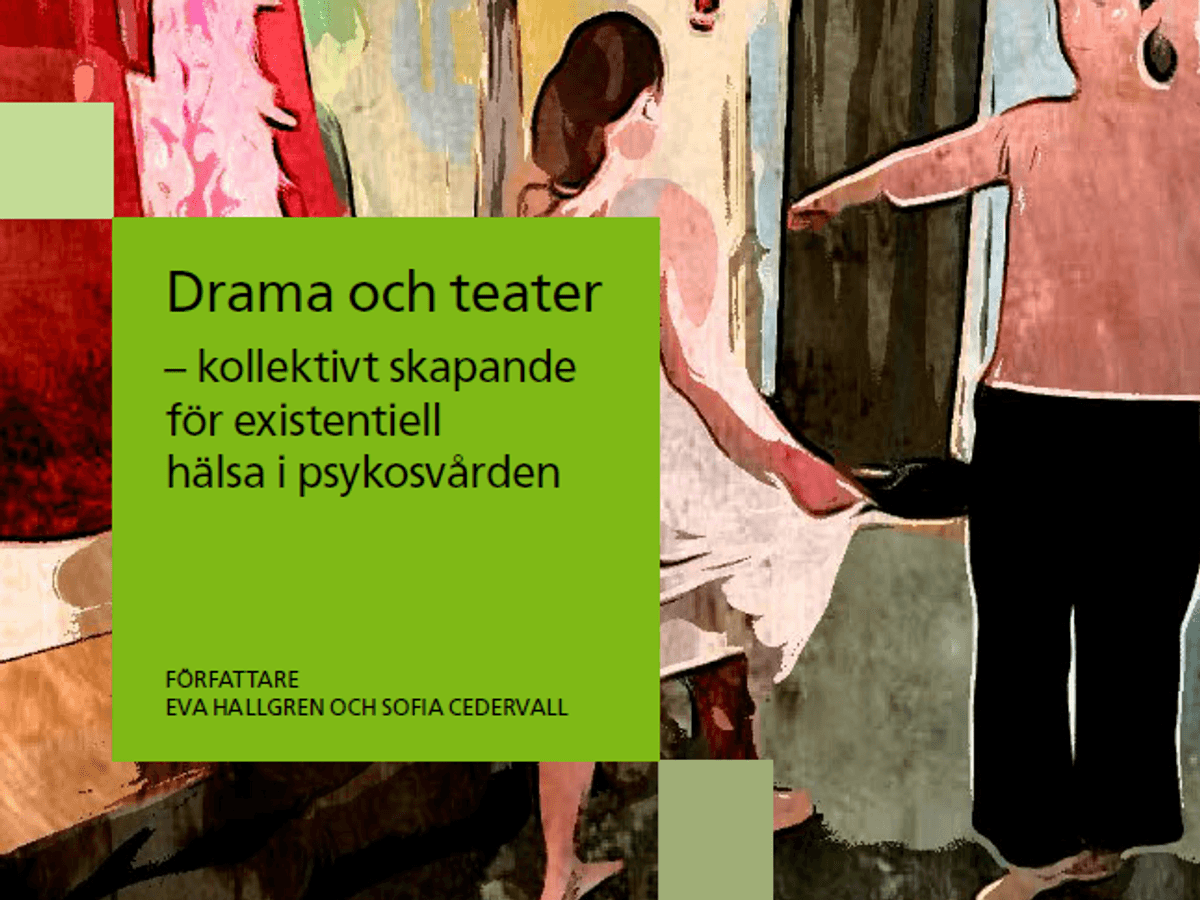
Drama and Theater in Psychiatric Outpatient Care for Young People Experiencing Stigma
Using theatre in psychiatry, this method invites young patients with psychotic disorders strengthen self-esteem, reduce self-stigma, and explore new ways of expression.
Drama and theater groups with mixed groups of caretakers and caregivers are led by an artist (poet, author and drama teacher). Participants meet weekly and work with exercises based on their own embodied experiences, words and ideas.
The focus is on narratives and evolving processes rather than performance. The aim is to strengthen self-esteem and identity, reduce stigma, and support recovery alongside care. The method was created by drama teacher Emma Lundenmark.
Follow-up research conducted by Eva Hallengren, PhD, and Sofia Cederwall, PhD, Stockholm University.
Implementation
At a clinic within Norra Stockholms Psykiatri, drama and theatre exercises were carried out over the course of a year with patients diagnosed with psychotic disorders. The focus is on health and the individual’s own strengths. Participants’ own words, ideas and experiences were incorporated and expressed in scripts and scenes.
Accompanying research
Researchers from the Department of Humanities and Social Sciences Education at Stockholm University conducted accompanying research. The aim was to capture the experiences of patients, healthcare staff, and managers who took part in activities generated by the project.
The purpose was to explore whether this cultural intervention could result in increased self-esteem and reduced self-stigma among patients with psychotic disorders, as well as to further develop the method so it may be used as a complement in the treatment of individuals with such conditions.
Methods
In Swedish, the method NECT is often described in terms of “Developing one’s personal story and reducing self-stigma”. NECT is based on verbal language and presupposes, to some extent, a linear process. Theatre and drama, on the other hand, use embodied expression and a poetic use of language that can give voice to what may be difficult to express in words alone. Theatre exercises can open up a more holistic perspective with parallel forms of expression and may therefore function as a complement to standard care and treatment.
We ame:
- to increase knowledge about culture as an intervention in psychiatric care.
- to test drama/theatre exercises as a complement to existing care and treatment in order to enhance wellbeing and reduce self-stigma among individuals with psychotic disorders.
- to develop a method for continued implementation of drama/theatre exercises that can be disseminated to additional psychosis clinics within the region and across the country.
- to inspire further research in the field of culture and health.
The multi-year theatre initiative was carried out with patients with newly diagnosed psychotic disorders. Norra Stockholm Psykiatri and the drama pedagogue’s contribution were funded by Region Stockholm’s Grants for Culture and Health. The accompanying research was funded by the Competence Centre for Culture and Health.

Report: Drama and theater for existential health in psychosis care
Download report in pdf-format.
- Updated: 24 september 2025
You might also be interested in

Antistigmateater
Link to page in Swedish about Antistigma